- Clone
- MoBU-1 (See other available formats)
- Regulatory Status
- RUO
- Other Names
- Bromodeoxyuridine
- Isotype
- Mouse IgG1, κ
- Ave. Rating
- Submit a Review
- Product Citations
- publications
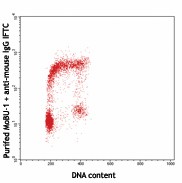
-

Brdu-incorporated Hut-78 cells stained with purified MoBU-1, followed by anti-mouse IgG FITC
| Cat # | Size | Price | Quantity Check Availability | Save | ||
|---|---|---|---|---|---|---|
| 317902 | 100 µg | 95€ | ||||
BrdU is a uridine derivative and a structural analog of thymidine that can be incorporated into DNA during the S-phase of the cell cycle as a substitute for thymidine. Cells can be pulse-labeled with BrdU and analyzed with antibodies against BrdU to determine the proportion of cells in the S-phase of the cell cycle during a given interval. The MoBU-1 antibody is useful for the detection of incorporated BrdU by fluorescent cell staining (ICFC), flow cytometry, and immunohistochemistry.
Product DetailsProduct Details
- Antibody Type
- Monoclonal
- Host Species
- Mouse
- Formulation
- Phosphate-buffered solution, pH 7.2, containing 0.09% sodium azide.
- Preparation
- The antibody was purified by affinity chromatography.
- Concentration
- 0.5 mg/ml
- Storage & Handling
- The antibody solution should be stored undiluted between 2°C and 8°C.
- Application
-
FC, ICFC - Quality tested
IHC-F - Reported in the literature, not verified in house - Recommended Usage
-
Each lot of this antibody is quality control tested by intracellular immunofluorescent staining with flow cytometric analysis. For flow cytometric staining, the suggested use of this reagent is ≤ 2.0 µg per million cells in 100 µl volume. It is recommended that the reagent be titrated for optimal performance for each application.
-
Application References
(PubMed link indicates BioLegend citation) -
- Swee LK, et al. 2009. Blood 113:6277. PubMed
- Basile V, et al. 2009. Biochem Pharmacol. 78:1035. PubMed
- 3. Benatti P, et al. 2011. Nucelic Acid Res. PubMed
- Tahirovic S, et al. 2010. J. Neurosci. 30:6930. (IHC)
- Harms G and Hardonk MJ. 1989. J. Histochem. Cytochem. 37:479. (IHC)
- Wang H, et al. 2014. PLoS One. 9:109697. PubMed
- Product Citations
-
- RRID
-
AB_604040 (BioLegend Cat. No. 317902)
Antigen Details
- Structure
- Uridine derivative that can be incorporated into DNA and substitute for thymidine residues.
- Distribution
-
Cells can be pulsed labeled with BrdU which will be incorporated into DNA during the synthesis phase of the cell cycle.
- Function
- Antibody against BrdU can be used to identify cells undergoing DNA replication during the period of BrdU incorporation.
- Biology Area
- Cell Biology, Immunology
- Molecular Family
- Nuclear Markers
- Antigen References
-
1. Gratzner HG. 1982. Science 218:474.
2. Dolbeare F, et al. 1983. Proc. Natl. Acad. Sci. USA 80:5573.
3. Dolbeare F, et al. 1985. Cytometry 6:521. - Gene ID
- NA
- UniProt
- View information about BrdU on UniProt.org
Related Pages & Pathways
Pages
Related FAQs
Other Formats
View All BrdU Reagents Request Custom Conjugation| Description | Clone | Applications |
|---|---|---|
| Purified anti-BrdU | MoBU-1 | FC,ICFC,IHC-F |
| Biotin anti-BrdU | MoBU-1 | ICFC |
Customers Also Purchased
Compare Data Across All Formats
This data display is provided for general comparisons between formats.
Your actual data may vary due to variations in samples, target cells, instruments and their settings, staining conditions, and other factors.
If you need assistance with selecting the best format contact our expert technical support team.
-
Purified anti-BrdU
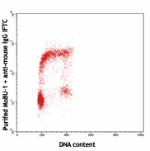
Brdu-incorporated Hut-78 cells stained with purified MoBU-1,... -
Biotin anti-BrdU
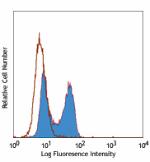
Brdu-incorporated Hut-78 cells stained with biotinylated MoB...

 Login / Register
Login / Register 




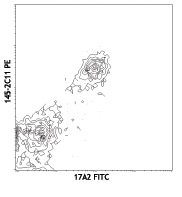
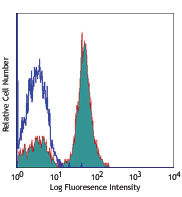
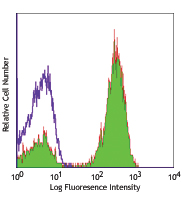




Follow Us